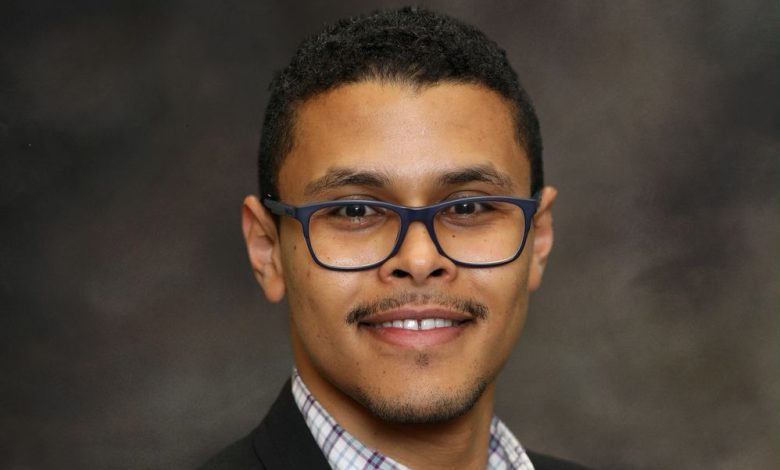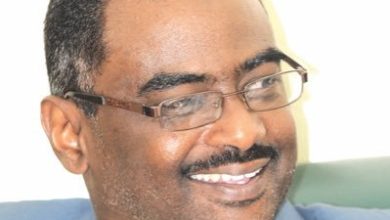Opinion
To End Sudan’s War, Pressure the UAE

By Yasir Zaidan*
Abu Dhabi is prolonging the war by arming the brutal rebels of the Rapid Support Forces. The international community must stop giving it a pass.
Sudan, already ravaged by a disastrous war, is now suffering from a failed, politicized humanitarian response.
The ongoing crisis there has reached catastrophic proportions, yet the international community’s response remains woefully inadequate. A series of missteps and political maneuvers have undermined efforts to provide meaningful assistance to those in desperate need, and the Rapid Support Forces (RSF), the paramilitary group responsible for much of the violence, has yet to be held accountable for actively destroying the country’s food reserves. The situation demands immediate attention and a drastic shift in approach from global leaders and institutions.
At the core of this failure is the United Nations Security Council’s persistent delays in addressing findings from its own Panel of Experts on Sudan. These findings document “credible” allegations of the United Arab Emirates’ involvement in violating Darfur’s arms embargo by supplying the RSF with weapons and ammunition. Furthermore, the Guardian reported that U.K. government officials have been blocking discussions of the UAE’s involvement in the Security Council for months—including after the Labour Party took power in July.
This procrastination not only undermines the urgency of the crisis, but also permits potential external interference to continue unchecked. The Security Council’s inaction sends a troubling message about the international community’s commitment to resolving the conflict and protecting Sudanese civilians.
While diplomatic efforts are crucial, these discussions offer no new mechanisms to enforce an end to attacks on civilians. The U.S. special envoy for Sudan, Tom Perriello, has failed to provide any concrete mechanisms for enforcing last year’s Jeddah declaration, which required the protection of civilians and specifically committed the RSF and rival Sudanese Armed Forces (SAF) to vacating and refraining from occupying public and private facilities. Perriello simply noted in an interview on X earlier this month that the UAE and Egypt will attend the latest round of talks, held in Geneva in mid-August.
Yet there is no substantial pressure being applied on the UAE. Without concrete measures to protect the Sudanese people, such talks risk becoming little more than performative gestures, failing to address the immediate suffering on the ground. The Sudanese government boycotted the Geneva talks after the UAE was added as a mediator, despite its continued military support to the RSF. Additionally, U.S. rapper Macklemore canceled his October show in Dubai to protest the UAE’s destructive role in the Sudan conflict.
The international community’s financial response has been equally disheartening. Despite numerous humanitarian conferences, only a fraction of the $4.1 billion appeal made by the U.N. in February 2024 has been met. This severe underfunding leaves millions of Sudanese refugees and internally displaced persons without essential support, exacerbating an already dire situation. The stark contrast between the promises made at these conferences and the actual aid delivered reveals a troubling gap between rhetoric and action.
The lack of accountability for those perpetrating violence and weaponizing famine is exacerbating Sudan’s crisis. The RSF, responsible for much of the destruction, continues to operate with impunity, actively destroying the country’s food reserves. Since the RSF took control of the state of Jazirah, the country’s farming center, in December, the nation has been grappling with humanmade famine. Farmers in the state have reported a near-complete loss of cotton and wheat crops due to RSF control.
In contrast, areas that remain under SAF control saw normal crops. According to local reports in Jazirah, the RSF pushed local farmers to harvest crops only to confiscate them and transport the yields out of the state for their own benefit.
On June 26, the RSF advanced on the southeastern trading hub of Sennar, seeking to expand its territorial gains more than 14 months into its war with the Sudanese army. This move forced the displacement of more than 150,000 people living in the state, many of whom had fled from Jazirah during the RSF invasion in December 2023. The militia also targeted Sennar’s agricultural project and food reserves, further deepening the humanitarian crisis and undermining efforts toward stabilization and peace.
Doctors Without Borders (or Médecins Sans Frontières, the MSF) reports that the RSF is targeting local hospitals and blocking aid in Darfur. Outside the city of El Fasher, where more than 800,000 civilians are trapped by the RSF, MSF supply trucks have been held in the nearby town of Kabkabiya by the RSF for the past four weeks. This blockade threatens to leave the Saudi Hospital, one of the last working health facilities in El Fasher, without critical supplies.
Ishag Abdullah Khatir, 30 from Geneina in West Sudan whose leg was amputated after he was shot by RSF soldiers, walks through Ambelia refugee camp on April 20 in Adre, Chad.
Will Washington Sanction Sudan’s RSF?
Sudanese refugees walk along a dirt path next to a metal fence topped with barbed wire beneath hazy clouds against a blue sky. Many carry belongings with them, including a woman at the front of the pack balancing a large sack on her head as she carries others in her arms. Leaning against the fence are tents and cloths draped to create shade.
U.S. Works to Revamp Peace Process for War-Torn Sudan.
People watch as fighters of the Sudan Liberation Movement, a rebel group active in Sudan’s Darfur State, attend a graduation ceremony in the southeastern Gedaref state on March 28.
Sudanese Militias Are Committing Genocide in Darfur—Again
This deliberate targeting of essential resources not only worsens the humanitarian crisis, but also underscores the urgent need for international intervention to implement the U.N. arms embargo in Darfur and stop the alleged UAE arms supply to the RSF through Chad.
Moreover, it is crucial to halt the alleged UAE arms supply to the RSF through Chad, particularly at Amdjarass’s airport, a small town in eastern Chad where UAE air cargo planes reportedly land and unload weapons that are then transported across the border to RSF strongholds in Darfur.
Political maneuvering has further complicated efforts to address the crisis effectively. Actions such as the United Kingdom’s reported intervention to alter the format of U.N. Security Council meetings have prevented Sudan from directly presenting its case, prioritizing commercial interests with the UAE over humanitarian concerns.
Al-Harith Idriss, Sudan’s permanent representative to the U.N., asked for an urgent Security Council meeting on April 26 in response to what he described as UAE “aggression” against his nation. However, the U.K., serving as the current penholderon Sudan in the Security Council, intervened to change the meeting’s agenda and format to closed consultations. As a result, Idriss was not allowed to attend the meeting, which ultimately took place on April 29.
During these secret discussions, U.N. Security Council members issued a statement urging the RSF to commit to refraining from attacking any cities and to end the violence surrounding El Fasher. On another occasion, the Guardianreported that the U.K. government has been actively discouraging African states from criticizing the UAE. Such actions erode trust in international institutions and their ability to respond impartially to crises.
The current approach to Sudan’s war is failing. The international community must prioritize the protection of civilians, punish perpetrators of violence, and deliver on financial commitments. The UAE and its proxy, the RSF, must be held accountable for their alleged crimes and, in the case of the latter, attacks on civilians in Sudan. The five permanent members of the U.N. Security Council should publicly address the UAE’s reported support of RSF crimes and the Emirati government’s violation of the international arms embargo in Darfur.
Furthermore, international human rights organizations should take Abu Dhabi to court for its alleged crimes against Sudanese civilians. The UAE’s ongoing arms supply has enabled the RSF to carry out ethnic cleansing in Darfur and commit massacres in Khartoum, Jazira, and Sennar.
Some actions have already been taken. The Raoul Wallenberg Centre for Human Rights is campaigning to hold the UAE accountable in the International Court of Justice or through other legal avenues, such as in Germany or the European Court of Human Rights. Additionally, the International Criminal Court should leverage its existing jurisdiction over Darfur to prosecute crimes against humanity in the region. But more must be done. A concerted, unified international effort to address the root causes of the conflict could pave the way for lasting peace and stability and alleviate the suffering of the Sudanese people.
——-
* a doctoral candidate at the University of Washington and former lecturer at the National University of Sudan.


